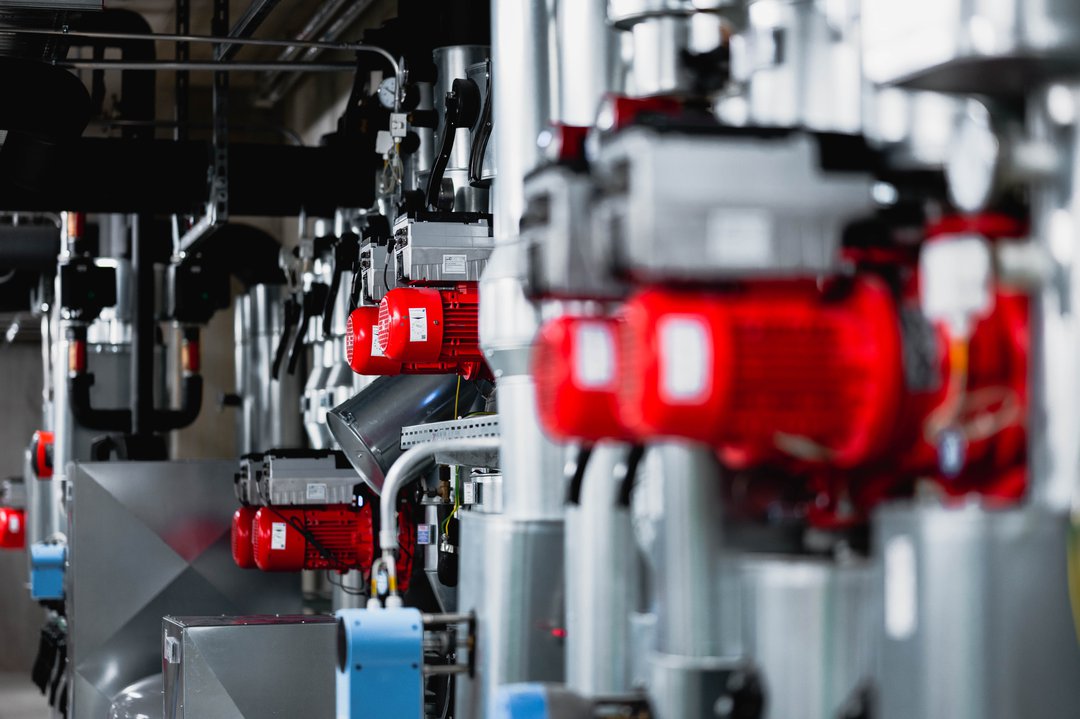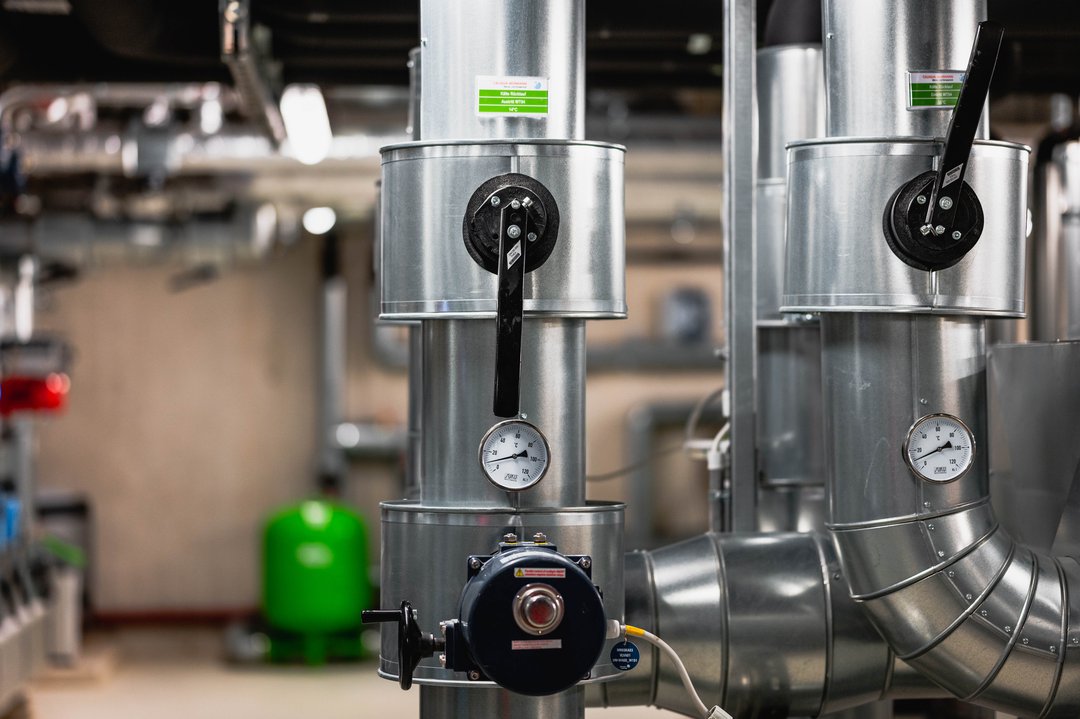On the way to climate neutrality by 2028
Environmental sustainability and climate change have been a focus of research at the 新万博体育下载_万博体育app【投注官网】 of Augsburg for many years. Achieving climate neutrality is a major concern for the university, which is aiming to become climate neutral by 2028. With many green spaces and a rich stock of trees, the university not only demonstrates its “green” commitment on campus, but also strives to act in a way that is as climate and resource friendly as possible across all of its activities in research, teaching, and administration.

Examples from research

Shaping the future of life on earth in the face of unavoidable changes due to climate change is a topic of many research projects at the 新万博体育下载_万博体育app【投注官网】 of Augsburg. The aim of the Centre of Climate Resilience at the 新万博体育下载_万博体育app【投注官网】 of Augsburg is to develop holistic and implementable strategies that enable adaptation, resilience, and continued prosperity in the face of the irreversible consequences of climate change. Other prominent fields of research in this area are the environmental humanities, the environmental health sciences, and resource strategies. Early-career researchers at the 新万博体育下载_万博体育app【投注官网】 of Augsburg are also addressing a range of different topics related to climate protection, in particular through the international doctoral programme “Um(welt)Denken.”
Examples from teaching and learning

Climate protection is a topic of research in many seminars, lectures, and research projects at the 新万博体育下载_万博体育app【投注官网】 of Augsburg. Various degree programmes deal with issues related to climate protection, and in many cases knowledge and research results can be directly applied to everyday life. One example of this is the “Augsburg Climate Trail.” Using a smartphone, interested people can learn about the causes of climate change at various ‘climate stations’ throughout the Augsburg city centre. Students at the university designed the project with the aim of raising awareness about climate protection and motivating more climate-friendly action and behaviour.
Examples from technology and administration

The large number of buildings and facilities at the 新万博体育下载_万博体育app【投注官网】 of Augsburg poses a complex challenge for those working in technology. With the help of individual measures, it is possible to save energy and thus make steady progress towards climate neutrality. In new building projects, sustainable and energy-efficient construction is important to the university. In addition to overarching measures, each individual member of the university can contribute to saving energy and thus conserving resources and protecting the climate.
Energy saving tips
Saving energy is a central topic for everyone this winter semester 2022/23, as much privately as in institutions and companies. The 新万博体育下载_万博体育app【投注官网】 of Augsburg is also called upon to contribute to energy saving measures.
In the current winter semester, heating in all buildings at the 新万博体育下载_万博体育app【投注官网】 of Augsburg will be adjusted down to room temperature of about 20°C. This is somewhat colder than usual in some places, but this is one way we can all contribute to saving energy. Each degree lower saves about 6% in heating costs. Further potential to save energy lies in your hands: through our individual behaviour, we can all achieve more.

Saving electricity
A lot of money is spent on electricity at the 新万博体育下载_万博体育app【投注官网】 of Augsburg. Here are a few tips for saving electricity that are easy and effective to implement.
?
- Bye, bye stand-by! If a device is on stand-by and not completely switched off, it continues to consume electricity. If you take a break, then give your office equipment a break too! This saves electricity and protects the equipment.
? - Out of the office? Turn it off. We also recommend switching off workstation equipment, such as PCs, notebooks, printers, etc. If you do not need to use the equipment for a long period of time, e.g., overnight, switch it off.
? - No electric fan heaters or small air conditioners: Electric fan heaters and small air conditioners are enormous energy wasters. These devices should therefore not be used at the university.
? - Do not boil more water than you need: With electric kettles, energy consumption mainly depends on the amount of water that is heated and the required water temperature. Therefore, do not heat more water than you actually need.
? - Every step counts: Use the lift. Every use of the lift consumes electricity. Taking the stairs can help to keep you fit and replace the gym.
? - Turn the lights off, let the sunshine in: The university only uses energy-saving light sources, which means that lighting accounts for only a small share of our electricity costs. Nevertheless, energy can still be saved with lighting. The question is not only which lamps are used but also how many.
Drawn curtains and artificial light are neither good for employees nor for the electricity bill. If you rely on daylight and constantly switch off the lights, you are already saving a lot of energy. Remember to switch off the lights if you are not at your workplace for a long period of time. Office furniture is not afraid of the dark! The same applies to adjoining rooms such as storerooms. When leaving, please switch off the lights!? The myth that frequent switching on and off of lights is detrimental to lighting and increases electricity consumption no longer applies since the ban on incandescent light bulbs. Switching off lighting saves electricity!
? - Only print when you need to: If you want to save electricity and paper at the same time, you should only print something when it is really necessary and only switch on the scanner and printer when you need to print or scan something. In the meantime, almost everything can be done digitally anyway.
Ventilation and air conditioning
Please do not open the windows in rooms with ventilation or air conditioning systems or leave the doors open. The ventilation system will be interrupted and will keep running without effect. Neither heating nor cooling will be able to keep the room at the right temperature resulting in unpleasant room temperatures, not to mention unnecessary financial expense.
Optimising heating
A lot of energy is consumed each year to keep the rooms warm. Refraining from thoughtlessly consuming energy can save a lot of money, without sacrificing comfort.
?
- Pleasant room temperature? A room temperature of about 20 °C should be sufficient at any time of the year; if necessary, a thick jumper and warm shoes will help you feel more comfortable. If the room temperature is too high, do not regulate it by opening the windows but by adjusting the radiator valves accordingly. Setting 3 should maintain a temperature of approx. 20 °C.
- Periodic ventilation: Do not let heat out of the window! If the windows are constantly left open, heat is lost. Fully opening the windows for 5 to 10 minutes, preferably with a draught, brings oxygen into the room without cooling it down (periodic ventilation).
- Unoccupied rooms: In rooms that are not used very often or only occasionally, heating does not have to be turned up to full the entire time. During longer absences (e.g., holidays, home office, or at night), the room temperature should be reduced using the radiator valve. Every degree lower saves about 6% in heating costs.
- Venting radiators: Noises in the radiator indicate that the heating system needs to be vented. Please inform Referat V/4- Maschinentechnik.
- Do not obscure radiators: Radiators are often obstructed by office furniture, which means that the heated air cannot circulate properly, and the thermostatic valves are thus ineffective.
- Closing corridor doors: Even though open doors in the corridor are practical and enable easy passage through the building, closing corridor doors is an efficient energy-saving measure. If corridor doors remain closed, cold air cannot move through the whole building. So please close corridor doors in winter.

